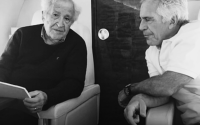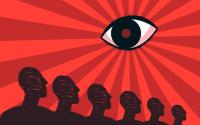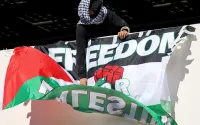Anthony Sampson9 May 2004
The danger that both America and Britain would become corrupted by the use of torture was predictable as soon the twin towers in New York were destroyed on 11 September, 2001. 'We must make sure that in our war against brutal enemies,' I wrote soon afterwards, 'we are not ourselves brutalised.'
I was influenced by Nelson Mandela, who had seen the horrors of repression in South Africa - he was quick to condemn the terrorism, but he warned that the West must not use the same methods as the terrorists.
But the pressures to legitimise torture were soon mounting. The FBI complained that it could not extract information from terrorists in detention and asked to be allowed tougher methods for interrogation. The military in Israel, which had become adept in interrogation of suspected Palestian terrorists, encouraged Western police to be less squeamish.
An Israeli security official told the New York Times the West might have to use 'other methods' if it was serious about the war against terrorism. The Americans soon became more resigned to 'other methods' after the war in Afghanistan, which could be largely concealed from the public behind the walls at Guantanamo Bay, or in Afghan prisons.
It is now clear that the Iraq war marked a new stage in the acceptance of torture by the Pentagon - even though it could be much less justified as a defence against terrorism. But it is also clear that the use of torture was brutalising individual soldiers, as had so often happened in history.
It was a problem which Britain had seen before in colonial wars - particularly during the Mau Mau rebellion in Kenya in the Fifties, which was suppressed with the use of much torture and methods which have only recently come to light. And the brutalising of American soldiers was all too evident during the Vietnam war. But the most obvious and relevant lessons come from the 1954-1962 war between France and Algerian rebels, when the use of torture nearly tore France apart.
It was during the Battle of Algiers in early 1957 that the issue came to a head, as brilliantly portrayed in the classic film of that name by Pontecorvo, and in Alistair Horne's book A Savage War of Peace. When the French General Jacques Massu was sent to pacify Algiers, he authorised the widespread use of torture, including interrrogation with the aid of electrodes and near-drowning.
As the full details of the interrogation methods became known, French politicians and intellectuals were appalled by the brutalising of both sides and people began to turn against the war.
A 'safeguard committee' was formed in Paris to investigate the military excesses. 'The most serious problem is not the atrocities themselves', wrote one committee member, Robert Delavignette, 'but that as a result of them the state is engaged in a process of self-destruction.'
Many commentators reckoned that torture had helped to win the Battle of Algiers, by revealing the whereabouts of the key terrorists. But it also helped to recruit more rebels, and eventually to lose the Algerian war, which continued for five years afterwards, ending in the French withdrawal.
'Torture has perhaps saved some at the expense of honour, by uncovering 30 bombs,' wrote Albert Camus. 'But at the same time it has created 50 new terrorists'.
Both Algerians and French are still paying the price for that prolonged and fearful war, and Algerians in France have played their part in the revival of terrorism today. Future generations in both America and Britain will find it hard to forgive their political leaders if they repeat the mistakes.
http://observer.guardian.co.uk/print/0,3858,4919726-102274,00.html






